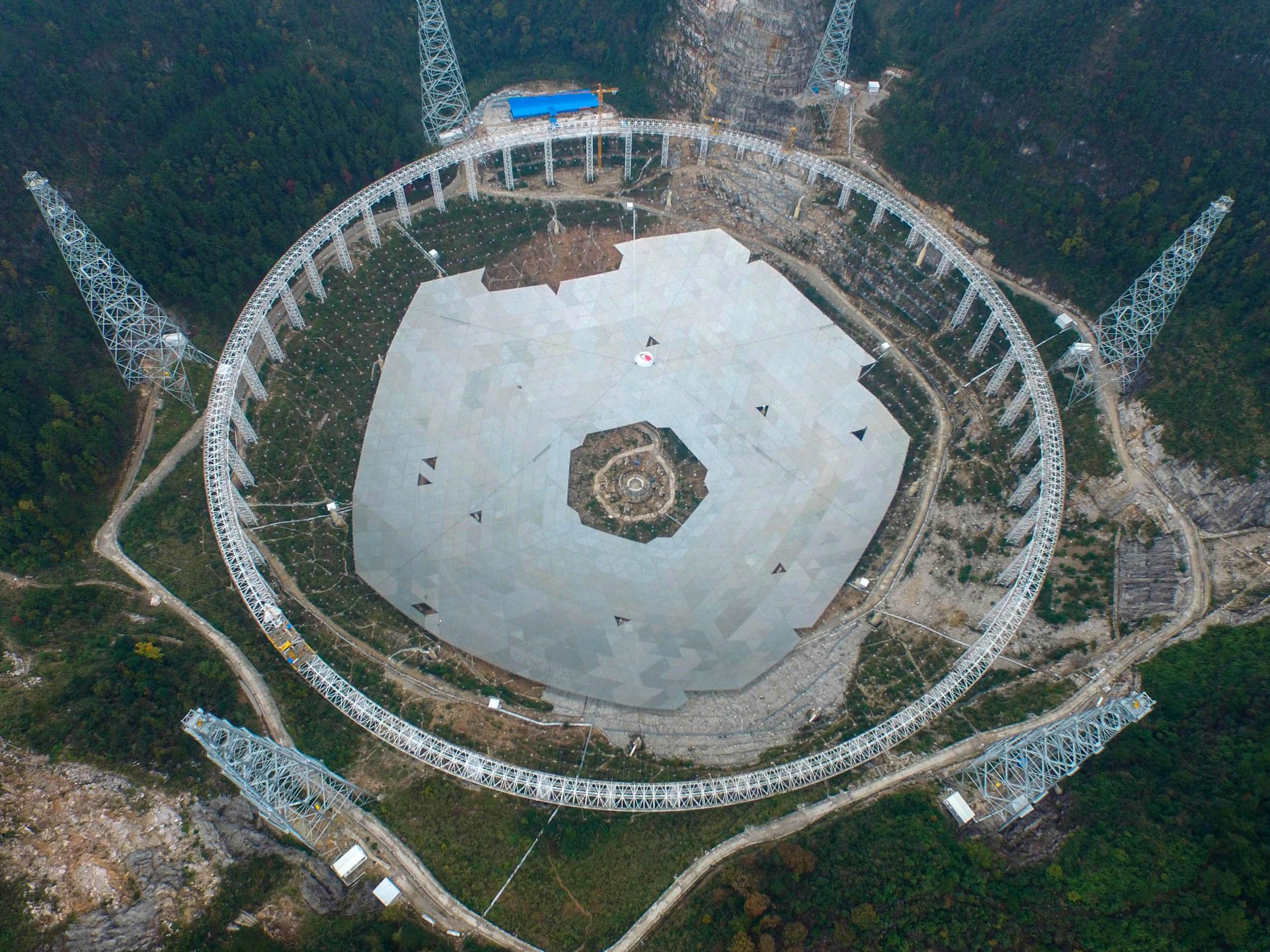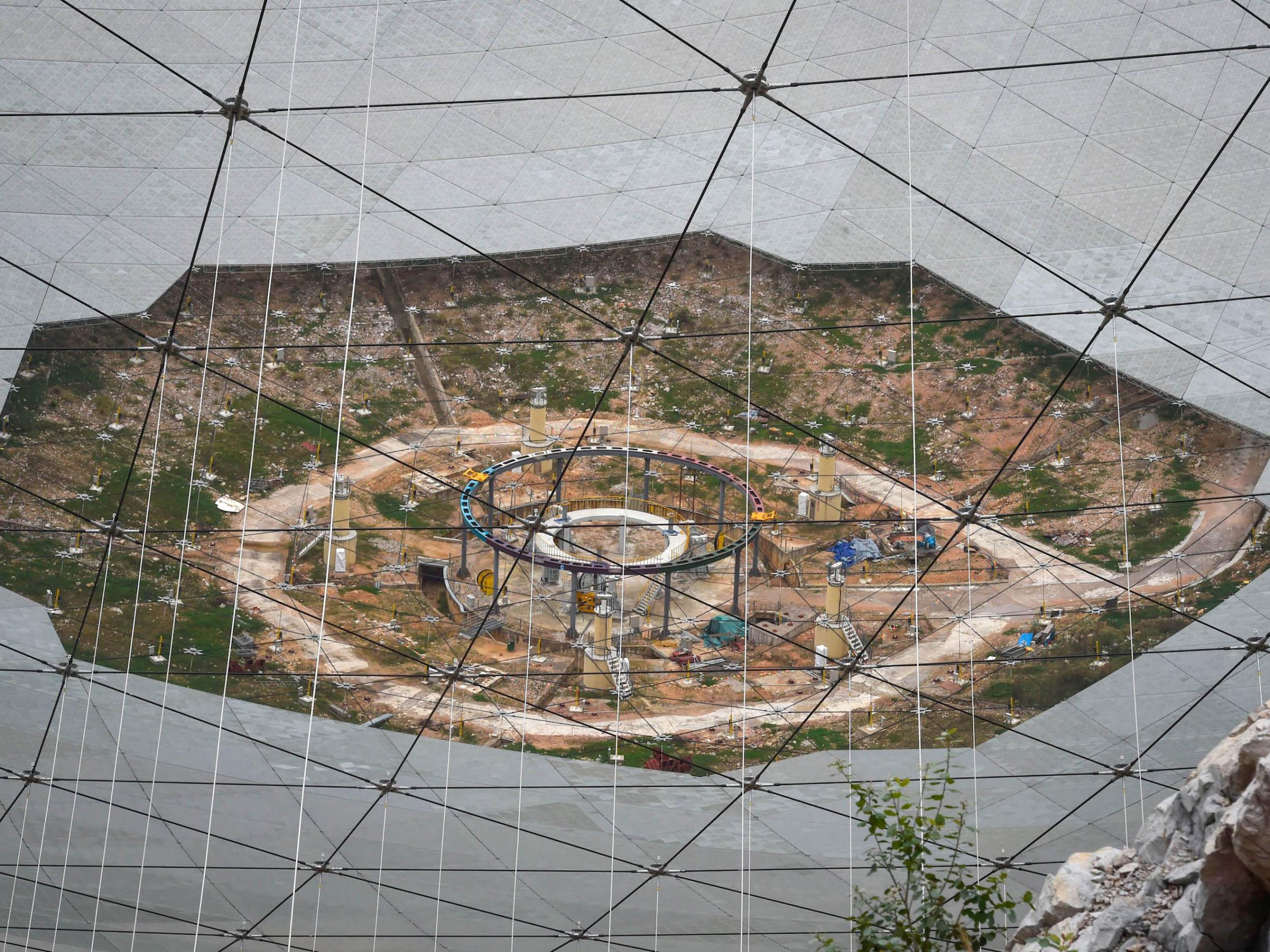China to relocate 9,000 people for huge telescope sensitive enough to detect intelligent life
The 500-metre device will the world's biggest telescope and can reflect signals from distant parts of the universe

Your support helps us to tell the story
From reproductive rights to climate change to Big Tech, The Independent is on the ground when the story is developing. Whether it's investigating the financials of Elon Musk's pro-Trump PAC or producing our latest documentary, 'The A Word', which shines a light on the American women fighting for reproductive rights, we know how important it is to parse out the facts from the messaging.
At such a critical moment in US history, we need reporters on the ground. Your donation allows us to keep sending journalists to speak to both sides of the story.
The Independent is trusted by Americans across the entire political spectrum. And unlike many other quality news outlets, we choose not to lock Americans out of our reporting and analysis with paywalls. We believe quality journalism should be available to everyone, paid for by those who can afford it.
Your support makes all the difference.China is to rehome more than 9,000 people to make way for the erection of the world’s largest telescope in the hope of finding extra-terrestrial life.
The 500-metre diameter device in Guizhou province is made up of 4,450 triangle panels which will reflect radio signals from distant parts of the universe.
Costing China 1.2 billion yuan (£128m), it will be the world’s biggest telescope, taking the title form Puerto Rico’s Arecibo Observatory, which is 300m in diameter.
Known as Fast, derived from the acronym of Five hundred metre Aperture Spherical Telescope, it is uniquely designed with 4,350 panels able to move up and down, enabling the whole hemisphere to rotate and reshape.
The work, which began work in 2011, will displace 9,110 residents of the Pingtang and Luodian counties.
People will be given 12,000 yuan (£1,280) in compensation, according to Chinese news agency, Xinhua.
Residents will be relocated within five kilometres of Fast, which will allow for a safe “electromagnetic wave environment”, according to Li Yuecheng, secretary general of the Chinese People’s Political Consultative Conference.

Speaking to China Daily, Li Di, a scientist from the National Astronomical Observatories, said: “ With a larger signal receiving area and more flexibility, Fast will be able to scan two times more sky area than Arecibo (Puerto Rico’s large telescope), with three to five times higher sensitivity.”
Wu Xiangping, the director-general of the Chinese Astronomical society told Xinhua Fast would be able to “search for intelligent life outside of the galaxy and explore the origins of the universe.”
The telescope underwent its final tests in November. The retina weighs 30 metric tonnes and is suspended around 150 metres above the dish, according to China Daily.
It will be completed by June and up and running in September.
Join our commenting forum
Join thought-provoking conversations, follow other Independent readers and see their replies
Comments